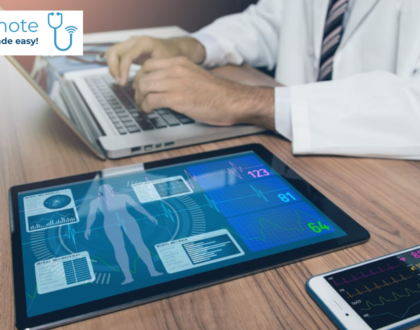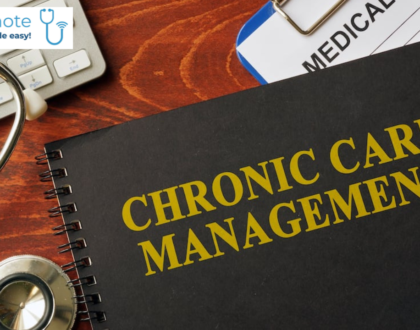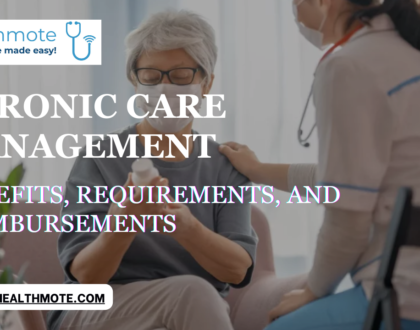
How RPM is Revolutionizing Chronic Disease Management
In recent years, the healthcare landscape has been undergoing a profound transformation, thanks to advancements in technology. One of the remarkable developments in this field is the advent of Remote Patient Monitoring (RPM). RPM is changing the way chronic diseases are managed, offering patients and healthcare providers new tools and opportunities for improved care. In this blog post, we will explore how RPM is revolutionizing chronic disease management, providing insights into the benefits and implications of this innovative approach.
The Rise of Remote Patient Monitoring (RPM)
Remote Patient Monitoring, often abbreviated as RPM, is a healthcare technology that allows patients to monitor their vital signs and chronic conditions from the comfort of their homes. RPM leverages a variety of devices such as wearable sensors, mobile apps, and telehealth platforms to collect and transmit data to healthcare providers in real-time. This data can include metrics like blood pressure, glucose levels, heart rate, and more, depending on the specific condition being monitored.
Benefits of RPM in Chronic Disease Management
1. Enhanced Patient Engagement: One of the primary ways RPM is revolutionizing chronic disease management is by actively involving patients in their own care. Patients can regularly track their health metrics and observe trends, empowering them to make informed decisions about their lifestyle and treatment options. This engagement can lead to better adherence to treatment plans and healthier outcomes.
2. Early Detection of Issues: RPM allows for the continuous monitoring of patients’ health parameters. Any deviations from the norm can trigger alerts to healthcare providers, enabling early intervention and preventing the escalation of health problems. This proactive approach can be a game-changer in managing chronic diseases effectively.
3. Personalized Care Plans: With the wealth of data collected through RPM, healthcare providers can create personalized care plans tailored to each patient’s unique needs. These plans are dynamic and can be adjusted in real-time based on the patient’s progress, ensuring that treatments are always optimized for maximum effectiveness.
4. Reduced Healthcare Costs: Chronic diseases often lead to frequent hospitalizations and emergency room visits, which can be financially burdensome for patients and healthcare systems. RPM can significantly reduce these costs by preventing complications, decreasing the need for hospital admissions, and promoting a focus on preventive care.
5. Improved Quality of Life: By allowing patients to manage their chronic conditions more effectively and with less disruption to their daily lives, RPM can lead to a significantly improved quality of life. Patients can enjoy greater independence and comfort while maintaining their health.
RPM and Healthmote
At Healthmote, we are at the forefront of RPM technology, offering cutting-edge solutions for chronic disease management. Our RPM platform empowers patients and healthcare providers with the tools they need to monitor, track, and manage chronic conditions seamlessly. With Healthmote, you can experience the future of healthcare, where chronic disease management is more effective, convenient, and patient-centered than ever before.
Conclusion
Remote Patient Monitoring is revolutionizing chronic disease management by putting patients in control of their health and providing healthcare providers with real-time data for more effective care. The benefits of RPM extend to enhanced patient engagement, early issue detection, personalized care plans, reduced healthcare costs, and improved quality of life. As technology continues to advance, RPM will play an increasingly vital role in transforming healthcare for the better.
If you’re ready to experience the benefits of RPM firsthand, visit Healthmote today and discover how we can empower you to take charge of your health

 Linkedin
Linkedin

